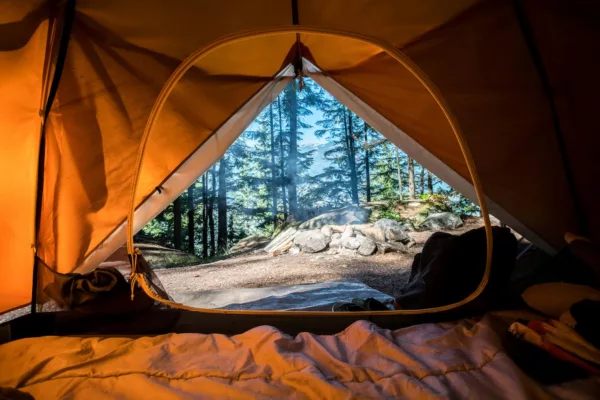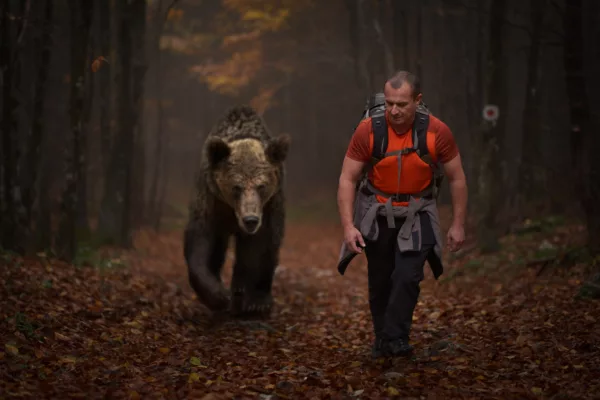How to Sell Used Gear

Selling used gear has become a hobby of mine — the excitement of buying something new always sets me on a hunt for old stuff to pass forward. While I find glory in “recovering” money from an item I no longer need or use, there is an art and science to the process.
“I just made $50!”
My husband corrects me, “Don’t you mean recovered?”
True. The backpack I just sold for a cool 50 bucks originally cost me $190 five years ago. Between then and now the two of us have shared countless journeys, travelled to nine different countries and carried everything from tents to diapers. However, we have a rule in our house that gear in means gear out — and mama needs a brand new bag.
Deciding when it’s time to part with equipment can be tough. There’s emotional attachment to well-used gear and guilt for the unused. To evaluate your inventory and get momentum going, here are a few questions to ask yourself:
• Have you used it in the past two seasons?
• Do you really need a spare (or four)?
• Is it worth more than the space it takes up?
If your answer(s) is “no,” then it’s time to let it go.
Where to Sell
Consignment Stores
Peter Hoffman, owner and inventory buyer of Sports Junkies Clearance Centre in Vancouver, BC, has been buying and selling used gear for 22 years. He says consignment is a great route to go if you want someone else to do the legwork. Every consignment store will have its own process, but generally speaking places like Sports Junkies are looking for a wide variety of gear in good working condition.
“The consignment process results in a split of the sales price — 60 per cent to the owner, 40 per cent to the store,” says Hoffman. “Most sellers prefer to receive cash immediately, so we split approximately 50 per cent of the selling value.”
Sports Junkies and other consignment stores will buy almost any sports item or apparel: clothing, camping gear, skis, snowboards, bikes, backpacks and so on, as long as it is functional, in good condition and ultimately has value. Recognizable brand names and items less than two years old tend to be the best sellers. Some items, like footwear, must be in very good condition and marked down considerably to sell.
Check your local listing for a sports consignment store in your community or check out sportsjunkies.com for more information.
Swap Meet
Another option is to rent a table at a local swap meet. If you have a lot of gear you want to sell this is a good route to go — you’ll get a focused shopping crowd with an incentive to buy.
MEC locations organize popular gear swaps in conjunction with their recreational festivals. Depending on the market, tables range in price from $5 to $20. MEC Event Coordinator Douglas Acorn suggests booking a table as soon as registration opens because tables will sell out in a matter of days. The bonus? Motivated buyers who wait in line overnight to find the best deal.
Acorn says the swaps are so successful for both the seller and the buyer because of the philosophy to pass the gear forward.
“The gear swap gives your gear a second life and helps someone along the way. This is an opportunity to put it into someone else’s hands at a great price. It continues a lifeline versus ending up in a landfill — if you can make a little money doing it, that’s a bonus,” he added.
For this reason exactly, MEC recommends pricing your gear at 80 per cent off retail. Customers come to these swaps knowing they will get an incredible discount; if you mark it down modestly it is not going to move.
Big-ticket items at these events are skis, kayaks, paddleboards and other watercraft because people know they will be priced well. Acorn suggests selling items connected to the current season because those activities will be front-of-mind for most customers.
Visit MEC’s special events site (events.mec.ca) to find upcoming events.
Online
Various online communities offer a place to sell. The most common are online classifieds like craigslist.org or kijiji.com. As well, local newspapers usually host classifieds for their respective cities and towns. Sport-specific websites and forums such as mec.ca and tetongravity.com are well-respected portals to buy, sell or swap gear with an outdoor savvy community. Finally, Facebook has buy and sell groups designated by location — “Toronto Buy Sell Trade” for example.
Depending on the outlet, you may need to be a registered user or group member to post. The upside to joining these groups is that you will become part of a respected, like-minded community. Since scammers can be called out and removed from the group, you will likely not have to deal with riffraff.
When selling online, it’s all up to you: posting information, pricing gear, corresponding with interested buyers and coordinating meets. This can be time consuming and involve travel, however, you get the full dollar amount on the sale price because there is usually no cost in posting the ad and you don’t have to split the fee with a consignment store or rent a table. It can make a lot of sense when you have one big item to sell. Every outlet will have rules for posting so make sure to check the site’s outlines and FAQ for specifics.
Smart Selling
The difference between selling and having a closet full of unsold items can come down to a few key strategies. Here are some tips on how to successfully sell your gear:
Pricing
Smart pricing will make for a quicker sale. You might not get as much as you had hoped, but pricing it on the lower side means it will likely sell fast. For example, Teton Gravity Research (tetongravity.com) suggests every used item is immediately 50 per cent off current retail with 10 per cent off for every year it has been used. MEC suggests 80 per cent off right off the bat. You can find your happy medium, but the lower your price the quicker it will move.
Pictures
Post good quality pictures of your actual gear. Don’t just post a product picture or link from the manufacturer. Buyers want to see what they are actually getting and don’t want to be disappointed or surprised.
Presentation
Same as pictures, presentation means everything. Have your gear as new-looking as possible — clean it, prep it and pack it up nicely.
Description
Give an honest description of your gear: condition, damage, make, year and so on. The more detail you give, the better chance that only interested people will reply. There is nothing more awkward than setting up a meet and showing them beat-up gear when they are expecting something pristine. It’s a waste of everyone’s time.
Seasonal
Sell for the current or upcoming season because that is where a buyer’s mindset will likely be. Selling skis in May, when people are getting ready for summer, is not ideal.
Subject
Put useful information in your subject line. For sites like Craigslist, your potential buyer is scrolling through multiple listings so make sure yours sticks out. Include what the item is, the brand, its condition, size and price. For example: “Moment Bibby Pro skis, BNIP, 190, $300 OBO” will catch a potential buyer better than “Men’s Skis For Sale.”
Karma
If you get something at a smoking deal (or free!) don’t try to make a profit on it. Offer it to your community at a good price for good karma.
Online Sales Speak
BNIB: Brand New In Box (unused)
BNWT: Brand New With Tags (unused)
BNWOT: Brand New Without Tags (unused)
BNIP: Brand New in Plastic (unused)
Like New, Mint: Very slightly used, no marks or wear
EUC: Excellent Used Condition
GUC: Gently Used Condition
MU: Multi-User (has life left but a little beaten-up)
FT: For Trade Only
FS: For Sale Only
WTT: Want to Trade
WTB: Want to Buy
ISO: In Search of
OBO: Or Best Offer (some wiggle room on price)
FIRM: Price is firm, no haggling
Caveat Emptor
As the old adage goes, it is buyer beware when purchasing online and/or from a person you don’t know. However, there are ways you can try to minimize the risk. Joining a well-respected community group on social sites or forums means administrators need to grant admission before someone can post — and it puts a face to a name. If a scammer attempts to pull one over, they can be publicly outed and deleted from the group. Never give sensitive information online, in fact for further precaution, consider using an escrow service as a third party to hold funds until all transactions are finalized (escrow.com). And finally, if it seems too good to be true, it probably is.
This article originally appeared in our Summer 2014 issue.














